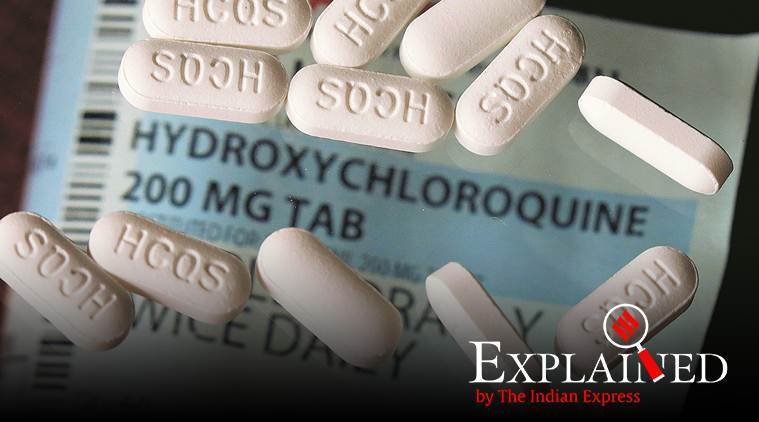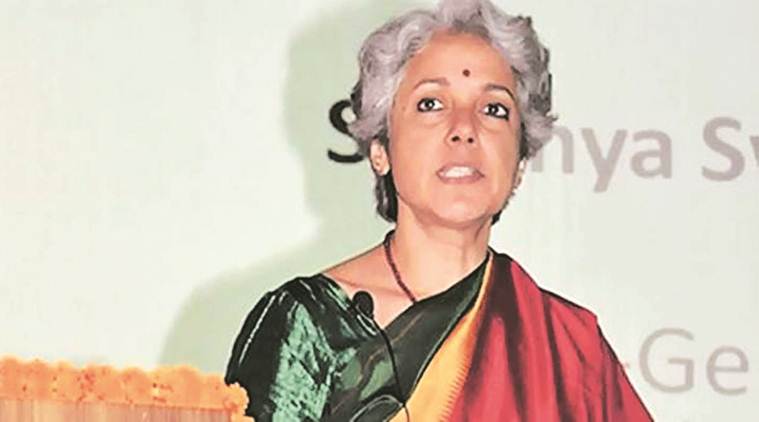
The Indian Express
Explained: What next for HCQ after enrolment freeze?
Coronavirus (Covid-19) Vaccine: A recent study in The Lancet had cautioned that the use of a regimen containing hydroxychloroquine or chloroquine (with or without a macrolide) was associated with no evidence of benefit.
by Anuradha MascarenhasThe decision to temporarily suspend enrolment in the Solidarity Trial’s hydroxychloroquine arm, one of four options being studied for Covid-19 treatment, was taken by the Solidarity Trial executive committee because the data safety monitoring board felt it prudent to gather more evidence on the safety and efficacy of the drug, World Health Organization (WHO) chief scientist Dr Soumya Swaminathan said on Tuesday.
Dr Swaminathan told The Indian Express that the trial is ongoing. This was a temporary measure and a review will be done of the emerging evidence from various trials worldwide, as well as the published literature. Dr Swaminathan said the interim trial analyses are monitored by the global data and safety monitoring committee, which is an independent group of experts.
A recent study in The Lancet had cautioned that the use of a regimen containing hydroxychloroquine or chloroquine (with or without a macrolide) was associated with no evidence of benefit. Instead the use was linked to increased rates of mortality and heart arrhythmias among hospital patients with Covid-19. However, Dr Swaminathan mentioned that this was observational data, subject to bias, and these findings need to be confirmed by well conducted RCTs (random controlled trials).
Asked about the use of hydroxychloroquine as a preventive drug to be taken by frontline health workers treating COVID 19 patients, Dr Swaminathan said the safety profile is likely to be very different in sick patients compared to healthy individuals. “There is no need for panic, but randomized trials need to be conducted on the use of the drug as a prophylaxis. The safety profile of the drug needs to be studied in both cases — drugs given to hospitalised patients and to healthy individuals exposed to COVID-19,” she said. She reiterated that data emerging from various studies is being reviewed carefully before WHO can take a policy decision on the use of HCQ.

In India, Pune-based Indian Council of Medical Research -National AIDS Research Institute (ICMR -NARI) is the nodal centre for coordinating the Solidarity Trial. Dr Sheela Godbole, Head, Division of Epidemiology, ICMR-NARI and national coordinator of the Solidarity Trial, said the trial continues and they have been engaged in the process of randomising patients. “There has been evidence from observational studies about HCQ and it is often a standard practice to temporarily stop the randomisation of the drug in the trial while a data safety management board review is ongoing,” Dr Godbole said.
“However there are three other drugs which are being assessed and the trial continues. We have registered more than 15 clinical sites for the trial and hope to register at least 30 and enrol 1,500 participants,” she said.
Dr Samiran Panda, Director, ICMR- NARI, said the trial started with a few patients a couple of weeks ago and they will have to wait and see what happens as other countries have also progressed in their trial efforts. “The trial has an adaptive design that allows for adverse events and hence it is standard practice to halt the drug temporarily,” Dr Panda said.
“The Solidarity Trial is a huge effort and we were due to start next week,” said Dr Zarir Udwadia, one of the members of Maharashtra’s Covid-19 task force. After the WHO directive, the other three arms will be studied, he said. He also said several trials exploring the use of CQ or HCQ for prophylaxis of Covid-19 in healthcare workers is under way.